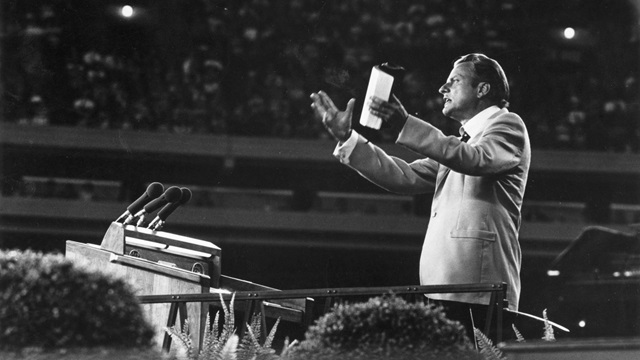Anyone who can guess the author of the following article will receive a copy of On Being Reformed:
Putting the X Back in Xmas
How to make “Jesus the Reason for the Season” – that is the dilemma facing evangelical Protestants. Some, the socially militant ones, insist that Christmas is a holiday by divine right and fight for the public nativity scene in town square, hoping to hide its otherwise nakedness. The evangelistic evangelicals (perhaps a redundancy) hope to use the holiday to reach the lost, taking advantage of banners, plays, or even worship to proclaim the gospel to those nominal Christians who go to church during the holy month of December. But rarely have evangelicals owned up to the commercial nature of modern Christmas celebrations and their part in its commodification. In his recent book, Selling God, R. Laurence Moore shows how the evangelical Presbyterian, John Wanamaker, transformed his downtown Philadelphia department store into a church during Christmas, complete with the largest pipe organ in the world (!!), programs of Christmas carols, and other Christian symbols. According to Leigh Eric Schmidt, whose Consumer Rites parallels Moore’s book on religious consumerism, the nativity scene in Wanamaker’s Grand Court “remained the center-piece” of the store’s Christmas Cathedral, “often spotlighted with a beam of light that looked as if it had come shining down from the heavens.” According to Schmidt, the interplay between the divine gift of God’s only begotten son and the gifts exchanged at Christmas energized Wanamaker’s displays. “Christmas gifts provided a tangible vehicle for connecting with the sacred drama.”
THE PROBLEM WITH ALL evangelical approaches to Christmas, from the crassly commercial to the devoutly evangelistic, is that of begging the question. Is Christ’s birth really about “Christmas cheer,” whether the secular variety of spiked eggnog, jingle bells, and jolly Saint Nick, or the seemingly more dignified joy that comes from gratitude to God for sending his Son to redeem the lost? In other words, should the incarnation make us glad or humble? Any answer to this question should, of course, keep in mind the less sentimental aspects of Christ’s birth, the manger in the stable and Herod’s slaughter of the innocents.
A better reason for Christmas gloom comes from the Bible’s teaching about the humiliation of the second person of the Trinity in the incarnation. Children reared on the Westminster Shorter Catechism are taught to conceive of Christ’s earthly ministry under the rubric of his humiliation, as distinct from his exaltation. Question 27 reads, “Wherein did Christ’s humiliation consist?” Answer: “Christ’s humiliation consisted in his being born, and that in a low condition, made under the law, undergoing the miseries of this life, the wrath of God, and the cursed death of the cross; in being buried, and continuing under the power of death for a time.” What is important to notice is that the birth and death of Christ, and everything in between, compose a single act of God in which he humbled himself by being subject to his own creation in the most humiliating fashion. So what is said about the incarnation applies similarly to the crucifixion, the former being initial, and the latter the culmination of Christ’s suffering.
SINCE BIRTH AND BURIAL ARE part of Christ’s humiliation, they should nurture a similar response from us as Paul says in Phillipians 2. Unfortunately the piety of Christmas is insensitive to this teaching as revealed by the spirit and traditions of the holiday. So instead of celebrating the birth of Christ at Christmas, the church should look to a more appropriate form of celebration – the regular receiving of the Lord’s Supper, It is the proper alternative to Christmas cheer, consumerism and yuletide indulgence.
INSTEAD OF LINKING THE incarnation to fictional tales about Santa and his elves, the Lord’s Supper unites Christ to real events in the history of Israel, filled with redemptive significance, like the Passover. And rather than forcing new and irrelevant significance on to the narrative to achieve a new market-centered gospel of trade and consumption, the Lord’s Supper explains the true significance of Christ’s coming, namely, to be the sacrifice for the propitiation of God’s wrath. Moreover, the Lord’s Supper produces a reverence and solemnity appropriate for something as awful as the incarnation. Instead of this being a time of gorging and giggling, the Supper’s small portions nurture self-examination, repentance, and faith. One last thing – an important one for Presbyterians and Reformed – the Lord’s Supper is biblically prescribed whereas Christmas is not. As J. Gresham Machen wrote,
the Bible makes no definite provision for the commemoration of the birth of Jesus, but provides the most definite and solemn way for the commemoration of his death. . . . Indeed that commemoration of the death of Christ was definitely provided for by Jesus himself. “This cup is the New Testament in my blood,” said Jesus: “this do ye, as oft as ye drink it, in remembrance of me.” In those words of institution of the Lord’s Supper, Jesus carefully provided that His church should commemorate His death.
Evangelicals used to cry, “Back to Jesus.” Maybe its time they did by taking up the cross and giving up the manger.



